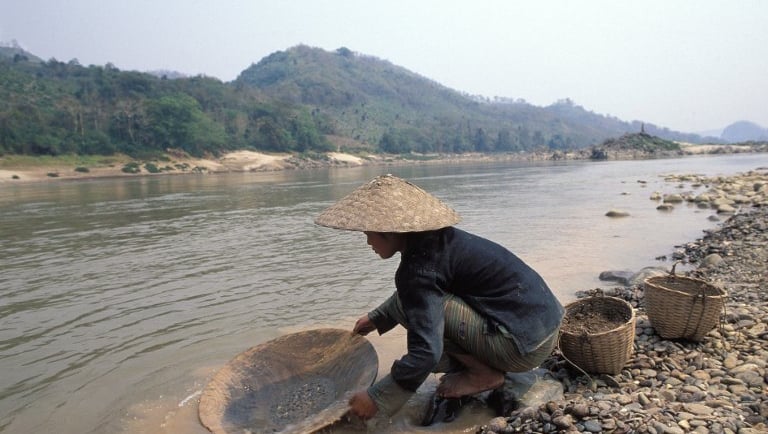Laos Takes Decisive Action: Nationwide Ban on Alluvial Gold Mining Issued
3/10/20253 min read


Introduction:
In a landmark move aimed at safeguarding its environment and protecting the livelihoods of its citizens, the Lao government has issued Order No. 06/PM, signed by the Prime Minister on March 7, 2025. This order mandates a nationwide cessation of permits for all forms of alluvial gold mining, signaling a firm stance against the devastating environmental and social impacts of this practice. The directive reflects a commitment to sustainable resource management and the well-being of the nation's communities.
The Heart of the Order: A Nationwide Ban and Strict Enforcement
The core of Order No. 06/PM is unequivocal: a permanent ban on the issuance of any new permits for alluvial gold mining across Laos. This prohibition extends to all related activities, including rock and sand dredging that opportunistically extract alluvial gold. To ensure compliance, the order explicitly forbids ministries and local administrative bodies from creating loopholes or exceptions. Instead, they are tasked with rigorously inspecting and enforcing measures against any instances of illegal alluvial gold mining.
Understanding the Devastating Impact of Alluvial Gold Mining:
Alluvial gold mining, while seemingly lucrative, poses significant threats to the environment and the communities that depend on it. The process, which involves extracting gold from riverbeds and banks, often leads to:
Water Pollution: The discharge of turbid water and harmful chemicals into rivers and streams contaminates vital water sources.
Environmental Degradation: The destruction of river ecosystems disrupts natural habitats and compromises biodiversity.
Livelihood Disruption: Communities reliant on rivers for fishing, agriculture, and daily water needs suffer severe economic and social consequences.
The Xeung-Xaeng River: A Case Study of Environmental Damage:
The impact of alluvial gold mining is starkly illustrated by the situation along the Xeung-Xaeng river system in Luang Prabang province. Since 2024, the presence of Vietnamese investor companies conducting alluvial gold mining has transformed the Xeung River, a lifeline for over ten villages, into a muddy, unusable waterway. Villagers who once relied on the river for their daily needs now face severe hardships, highlighting the urgent need for government intervention.
Addressing Existing Projects and Future Agreements:
The government's order also addresses existing alluvial gold mining projects. For projects that have already received approval and are currently operational:
The relevant companies will be called for negotiations to terminate their activities.
These companies will be required to restore the affected areas to their original condition.
Government sectors will closely monitor the restoration process to ensure compliance.
Furthermore, for projects where companies have made advance payments but have not yet signed concession agreements:
No further concession agreements will be granted.
All related documents will be returned, and a settlement will be reached. This may involve returning payments or offsetting the companies' obligations to the state in other projects.
Looking Ahead: A Commitment to Sustainable Resource Management:
Order No. 06/PM represents a significant step towards sustainable resource management in Laos. By prioritizing environmental protection and the well-being of its citizens, the government is sending a clear message that it will not tolerate practices that jeopardize the nation's natural resources and the livelihoods of its people. This decisive action underscores the importance of balancing economic development with environmental stewardship.
Call to Action:
This new order requires diligent enforcement and public support. Communities, local authorities, and government agencies must work together to ensure the successful implementation of this ban. It is essential to monitor river health, report illegal activities, and support sustainable economic alternatives for affected communities.
Conclusion:
The Lao government's ban on alluvial gold mining is a bold and necessary measure to protect the nation's environment and its people. By prioritizing sustainable resource management, Laos is paving the way for a healthier, more prosperous future. This order marks a turning point in the country's approach to mineral exploitation, emphasizing the importance of responsible development and the preservation of natural resources for generations to come.
